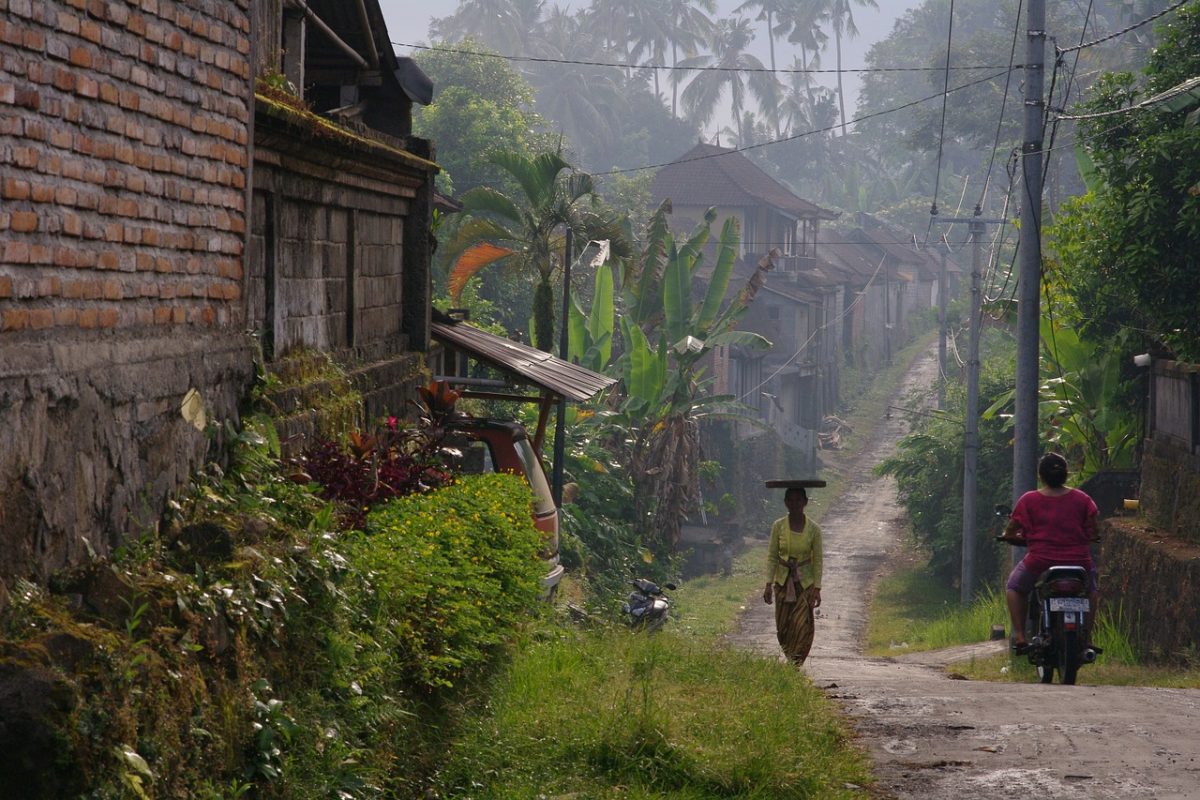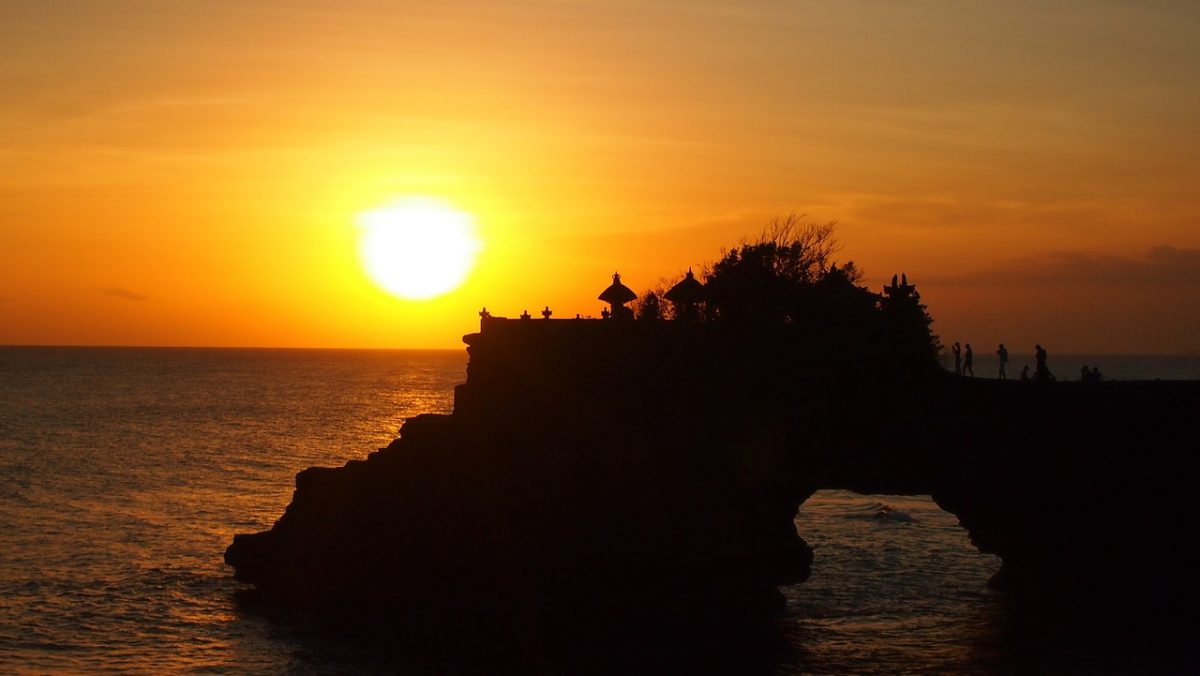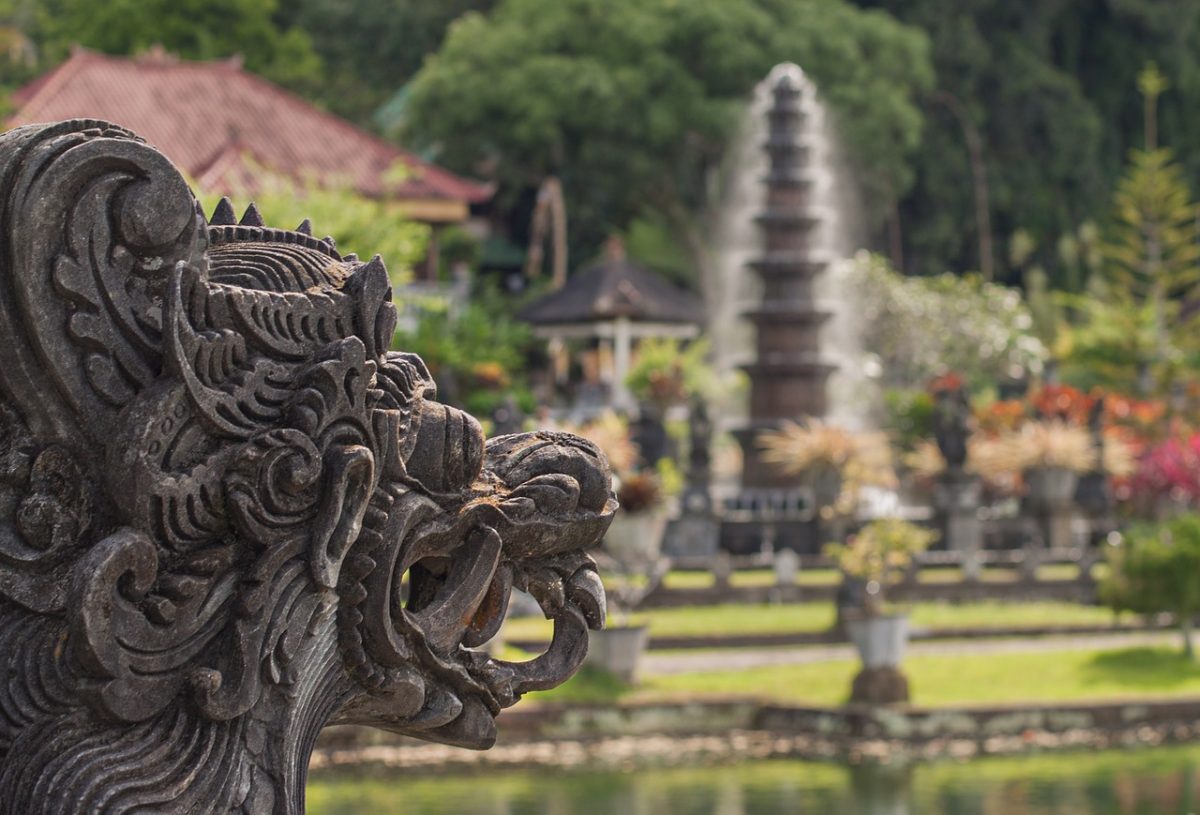I’ve got a love-hate relationship with Bali. On one hand, it’s a beautiful island with amazing scenery, lovely locals and an intriguing Hindu culture. On the other, it’s suffocatingly touristy, can feel very inauthentic and has some real problems that are arguably worsened by mass tourism.
Bali has spectacular sunsets and gorgeous views, but it is arguable that a) you’ll be sharing your experience with thousands of other tourists and b) that the way tourism in Bali is set up inadvertedly negatively impacts people there, even if it is not meant to.
Now, I’m not against tourists in Bali – I was a tourist in Bali, after all. I’m against the way tourism in Bali is executed, which has caused a beautiful island to become a tourist trap. After spending five weeks in Bali, I saw some amazing sights. I climbed up Mount Batur, snorkeled in Nusa Penida and explored the rice fields of Ubud and Canggu.
However, I still felt kind of uncomfortable there. Because a lot of the time, you can’t escape the mass tourism of the island, and as a responsible traveler, it left me thinking about the real impact that I had by being there.
The Positive Impacts of Tourism in Bali
Employment
Tourism has brought a lot more jobs to the island, many of which are paid better than other opportunities. Balinese employment is now varied, with some people opting to own guesthouses and others doing their own tours of the island. Generally, most Balinese people I spoke to were optimistic about tourism because of the range of employment options that are now available to them. Many Balinese and other Indonesian people have moved to the tourist hotspots to work and send money back to their families.
Economic Advantages
Tourists bring money, and when it’s spent in the right place, it helps the Balinese economy. Because many tourists to Bali are in ‘holiday mode’, they’ll often spend a sizable amount on food, drinks, and shopping. When spent in the right places, this helps the individuals who run the restaurants, guesthouses cafes, etc. Furthermore, as their money is often spent within Bali it strengthens the economy of the island and Indonesia as a whole.
Meeting Foreigners and Sharing Cultures
Globalisation is both good and bad. In a positive light, tourism to Bali has helped locals learn about other countries and has opened them up to the possibilities of remote or international work. Meeting people from all over the globe has amazing advantages, as we can all learn from each other in so many ways, and many people in Bali who aren’t even in the travel industry are now doing a different job, thanks to tourism.
The Negative Impacts of Tourism in Bali
Busyness
Even without the growing westernization of Bali, it is crazily busy. Bali has a huge population anyway, and then when you take into account the thousands of tourists who descend on the island each year and Indonesians who have moved to the island to work in the tourist industry, you’ve got an island that’s about to sink.
Busyness isn’t something that many people favour when they want a beach break and yes, sometimes you’ll struggle to get a good spot on some of the busier beaches in Bali. But overpopulation has some bigger concerns, especially in places as small as Bali. More people means more traffic (it once took me an hour to drive five kilometres), more development – which can affect the environment – and sadly, more rubbish.
Plastic Pollution
It is no secret that Indonesia has a plastic problem. Not much on the island gets recycled, and because everywhere is so close to the sea, that’s where it ends up – very quickly. It’s easy to forget about the huge plastic crisis that the world is experiencing when we’re offered a straw or a plastic bag – but when visiting Bali or anywhere else in the world (particularly coastal destinations) we really need to be helping the solution, not contributing to it. Sadly, more tourists mean more plastic cups and straws, and more trash in the ocean. I’m not very comfortable contributing to this.
There are also other environmental impacts of tourism on Bali, like the growing need of accommodation options for wiping out protected natural areas. This disrupts the ecosystem and could create a lot of problems for Bali in the long run.
The Dark Side of Bali
Tourism has also introduced some less than desirable qualities to Bali – prostitution, and subsequently, human trafficking is on the rise. The introduction of tourists has also seen the introduction of drugs, which have the death penalty for in Indonesia. You can learn more about these issues – and how to help to prevent them – at Dark Bali.
Economic Leakage
While tourism in Bali has brought more money, a lot of the time it only benefits the owners – who are often foreign. Staff of these big companies are typically not paid that much, and most of the money goes into the wealthy owner’s pocket, who may be from Britain, Australia, the US or any other country – generally a wealthier one than Indonesia. This means that the impacts of these businesses to the Balinese are mainly negative – business is taken away from local competitors, land is taken up, and prices are hiked up for locals.
Cultural Suppression
Balinese culture is one of the main reasons that I love the place. But, due to the overtourism, culture is being more and more suppressed – and it’s really sad. This is one of the negative effects of globalisation – tourists who come to Bali and treat it as their own place, without paying attention to the Balinese way of life, are really wrecking the traditions here. This is a problem all over the world, but out of everywhere I’ve visited I noticed it especially in Bali.
Is Bali Worth Visiting?
Everything being said, I still love Bali, and I still will go back to Bali. I just want to promote the right kind of Bali tourism. There are ways that we can increase the positive impacts of tourism in Bali and decrease the negatives. How? I’ll tell ya…
- Eat at local warungs – not only are these restaurants delicious, and have good vegan and vegetarian options, but they are locally run so the money goes back to the owner, which is normally a family. The prices here are a lot cheaper than what you’ll pay in western restaurants as well. Plus, Indonesian food is great and caters for most dietary restrictions.
- Stay in homestays when possible – Bali is dotted with these. Some are basically locally run hotels, others are local homes. As long as it’s run by Balinese people, it will help them out.
- Take taxi drivers’ tours – many drivers do this as another way of earning an income and find it more enjoyable than driving different people around all day. They are really flexible with their tours and will take you to less touristy places if you ask. If there’s a few of you in the car, it’s a great deal.
- Cut your use of plastic – take reusable straws (you can buy some here), resuable coffee cups (click here to buy) and reusable bags (here’s some)
- Get to know the Balinese people! – English is quite widely spoken in Bali, and the locals are lovely people. They’re always down for a chat, and will love to share their culture and traditions with you.
- See traditional shows – Balinese dance shows are easy to come across, especially in Ubud. There are lots of other ceremonies and rituals, some which tourists are allowed to watch. Having an interest in these keeps them alive.
- Learn about the history and religion of the island – you can do this by visiting some of the many temples in Bali and chatting to locals about their spirituality and beliefs.
- Head to some less explored places of the island – these areas will be quiet and calm, and a place to experience ‘real’ Bali. You’ll be able to meet some locals here and stay in a homestay.
- AVOID big companies that obviously have their roots in other countries. This includes multi-national hotels, some beach clubs and foreign restaurants and bars.
- Get involved in ethical volunteering, read up about some of Bali’s issues and spread the word about what we can be doing to help. I highly recommend ‘Under the Volcano – The Story of Bali’ (purchase it here) to get a good understanding of the island’s history.
Have you visited Bali? What did you think of it? For more ethical travel posts, subscribe to Claire’s Footsteps or follow me on Facebook!






Thumbs up Claire for seeing what is happening. Bali by now stinks and sinks under mass tourism who treat the island & take up land as if it IS theirs. Then too, this cannot happen if tourism development is a well balanced arm of government. Alas, it’s AGAIN a corrupt money game, misused by government & foreign investors and overused by long & short terms tourism wrecking it even further. At least most of them.
Thanks for the comment Elisa. I know, it’s really sad and it’s such a beautiful culture that’s being oppressed 🙁 I will still visit Bali, however, and support all of the local businesses and cultures that I love there. I hope you can still find some beauty in the island as well!
I first went to Bali 24.years ago. I then went 9 years ago and again recently. My opinion is that Bali is sinking as you say under the consequence of mass tourism. Attitudes of the Balinese have changed in a negative sense towards tourists. They desire a better life for themselves and their families which is human nature.
The main worry of recent is that they can now obtain credit from lenders relatively easily, thus there is more traffic on the roads. I noticed a huge amount of new scooters and cars. They are paying up to 40% interest, private investors can obtain over 20% interest.
What would happen if there was a natural disaster like an earthquake or volcanic eruption? Total collapse of the infrastructure leading to the end of tourism for an unknown period of time.
These are very worrisome times and I don’t see a solution.
I enjoyed reading your post Claire. My family are visiting Bali in a few weeks and I am using your site to help my IGCSE Geography students understand the good things and bad things about international tourism.
Well done
That’s great to hear Neil, I’m glad it’s helping! Thanks a lot for your comment 🙂
Wonderful Post. Really, this is the perfect case study for analyzing how tourism impacts indonesia.
Thanks Prakriti!
Thank your for your attention in bali tourism impact. i am a balinese born and rise in rich culture area of ubud and i can say that all your writing are correct. nowadays beside cultural degradation because of mass tourism we also face a land use change where more and more rice field and riverside, green area were change to villa, hotel and other tourism facility. many of balinese aren’t aware of current change, there are feel more satisfied with evoluiton of thing because its easier to make money from tourism.
*sorry for my english
Hi Nyoman, it’s great to hear from a local and thanks for your encouraging comment. Yes I completely agree, industries are changing fast in Bali but that doesn’t necessarily convenience everyone and it definitely should be taken more into account. If you have any more ideas about how tourists in Bali can be more sustainable please do drop me an email at [email protected], it would be great to get some local perspectives in this post. Also your English is really good! My Indonesian is very bad but I try to speak some words when I’m there and I really like the language 🙂
Hmm yes, interesting.
I found your work to be very helpful with my English tourism assignment, Thanks
Glad to hear that!
Glad to hear that!
GIad to hear that!
I am a Balinese born in Kuta and yes these tourism problems are a great deal in my area.
This really helped me a lot thank you!!??
You’re welcome!
Thank you Claire for your analysis..I use this in my geography class to discuss the impacts of tourism industry in Bali..
Glad to hear this is helpful! 🙂